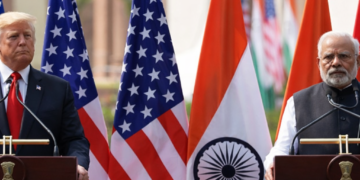Nigeria has received its first shipment of 846,000 doses of the R21 malaria vaccine from Gavi, the Vaccine Alliance. This significant milestone was marked by an official launch event on Thursday, attended by dignitaries from the Ministry of Health, the National Primary Health Care Development Agency (NPHCDA), and various development partners.
Health Minister Ali Pate hailed the arrival of the vaccines as a game-changer in Nigeria’s fight against this deadly disease. “This is a major step in our quest to eliminate malaria in the country,” he proclaimed, sounding every bit the optimist. However, one can’t help but wonder if a few hundred thousand doses are enough to tackle a disease that has plagued Nigeria for decades. Malaria remains a leading cause of illness and death in the country, so it’s fair to be skeptical.
The distribution of these vaccines will initially focus on states with the highest malaria burden, with Kebbi and Bayelsa at the forefront. It’s great to see some prioritization, but can we trust that these vaccines will reach those in desperate need? Given Nigeria’s history of distribution issues and bureaucratic hiccups, it’s wise to keep an eye on how this unfolds. Pate assured the public that the R21 vaccine will complement existing malaria treatments, which is all well and good, but let’s hope it doesn’t become just another statistic in Nigeria’s healthcare saga.

Addressing concerns about the vaccine’s effectiveness, Pate confidently stated that the R21 has proven to be both safe and efficient. Yet, in a country where vaccine skepticism runs high, such claims will need more than just assurances. The Director General of the NPHCDA, Muyi Aina, added a layer of intrigue by outlining plans for the vaccine’s distribution. He mentioned that an enforcement team would be established to ensure proper administration, and details regarding the date and location for vaccine rollout would be communicated in due course.
Aina also revealed that an additional 140,000 doses are expected in the coming months, with a goal of making a total of one million vaccines available in this initial batch. It’s a start, but let’s not forget that malaria is not going to sit around waiting for vaccines. The R21 malaria vaccine, which requires two doses per vial, was produced by the Serum Institute of India, raising another question: will Nigeria be relying on foreign manufacturers for a solution to its domestic health crisis?
As we watch this initiative unfold, it’s essential to remain cautiously optimistic. While the arrival of these vaccines is a positive development in the ongoing fight against malaria, we must demand accountability and transparency in their distribution and administration. After all, Nigeria has seen numerous health initiatives fizzle out before, and it’s time for this one to succeed. With the right actions and commitments, perhaps we can finally make a dent in the mosquito menace that has haunted Nigeria for far too long.

















